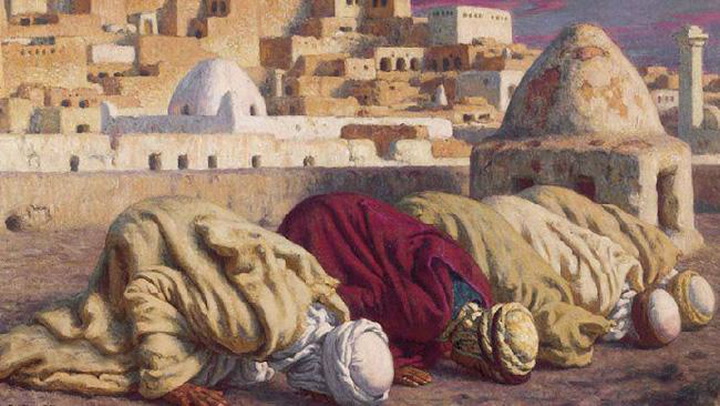Discover the inspiring journey of Imam Ahmad Ibn Hanbal (R.A.), one of the greatest scholars of Islam. Learn about his early life, struggles, teachings, and lasting legacy in this detailed guide. Imam Ahmad Ibn Hanbal (R.A.)—A Complete How-to Guide on His Life and Legacy.
When I first read about Imam Ahmad Ibn Hanbal (R.A.), I was struck by his dedication to knowledge and his unwavering faith. He wasn’t just a scholar; he was a role model who showed how to live with patience, humility, and courage. In this article, I will guide you step by step through his life, from his childhood to his immense contributions to Islamic thought.
H1: Early Life of Imam Ahmad Ibn Hanbal (R.A.)
Born in Baghdad in 780 CE (164 AH), Imam Ahmad grew up in an environment that valued knowledge. His father passed away early, leaving his mother to raise him. From a young age, he showed interest in learning the Qur’an and Hadith. I admire how he devoted himself to memorization and spent countless hours in study circles. His simple lifestyle reflected his strong commitment to faith and discipline.

H2: His Pursuit of Knowledge
Imam Ahmad traveled across the Islamic world in search of authentic Hadith. He studied under some of the most renowned scholars of his time, including Imam Shafi’i (R.A.). What inspires me is his determination to learn directly from reliable sources. He once traveled on foot just to verify a single narration. This shows me how serious he was about preserving the truth in Islam and passing it down accurately.
H3: His Teachers and Influences
Imam Ahmad was blessed with teachers like Hushaym ibn Bashir and Yahya ibn Ma’in, who shaped his understanding of Islamic law and Hadith sciences. The mentorship of Imam Shafi’i (R.A.) left a lasting impression, influencing his legal reasoning. When I read about their discussions, I see how respectful debates helped refine Islamic jurisprudence. His ability to learn while staying humble makes him a role model for every seeker of knowledge.

H2: The Mihna—His Greatest Trial
One of the most challenging times in his life was the Mihna (Inquisition) under the Abbasid Caliph al-Ma’mun. Scholars were forced to say that the Qur’an was created, a belief contrary to Islamic teaching. Imam Ahmad refused to compromise his faith. He was imprisoned, beaten, and tortured, yet remained steadfast. I feel so moved by his courage because it teaches me that truth and integrity are worth more than comfort and safety.
H3: His Patience and Perseverance
Despite facing whips and chains, Imam Ahmad never wavered. His strength came from his trust in Allah. He often said, “If knowledge is not preserved with patience, then it will disappear.” When I reflect on this, I realize how patience plays a central role in achieving greatness. His endurance is an example for anyone who faces hardships while holding onto their beliefs.
H1: Contributions to Islamic Jurisprudence
Imam Ahmad founded the Hanbali school of thought, which became one of the four major schools in Islam. Unlike others, he emphasized Hadith over personal reasoning, ensuring that Islamic law remained tied closely to prophetic traditions. I find this remarkable because it shows his commitment to authenticity. His teachings stressed simplicity, humility, and reliance on scripture. Even today, the Hanbali school influences Muslim practices around the world.

H2: His Famous Work – Musnad Ahmad
One of Imam Ahmad’s greatest legacies is his collection of Hadith, known as Musnad Ahmad. Containing over 27,000 narrations, it remains one of the most respected Hadith compilations. When I studied parts of it, I noticed how carefully he organized and verified narrations. His dedication reminds me that preserving knowledge is a responsibility, not just a privilege. This book continues to be a source of guidance for students and scholars alike.
H3: His Character and Lifestyle
Imam Ahmad lived a very modest life. Despite his fame, he avoided luxury and preferred simple clothing and food. He refused gifts from rulers because he wanted to remain independent. I find this part of his personality very inspiring—it shows me that true greatness lies in humility. He always put faith above worldly desires, and his example continues to motivate Muslims to live simply but meaningfully.
H1: Lessons We Can Learn from His Life
The story of Imam Ahmad Ibn Hanbal (R.A.) offers timeless lessons. Here are a few that I personally apply to my life:
- Patience: Enduring difficulties without losing faith.
- Humility: Living simply, no matter how much knowledge one gains.
- Commitment to Truth: Standing firm, even when pressured.
- Respect for Knowledge: Traveling far and wide for authentic learning.
- Courage: Defending Islam against false beliefs.
These lessons make me reflect on how I can improve my own daily practice of Islam.
Table: Summary of Imam Ahmad Ibn Hanbal’s Life
| Aspect | Details |
|---|---|
| Birth | 780 CE (164 AH), Baghdad |
| Teachers | Imam Shafi’i, Hushaym ibn Bashir, Yahya ibn Ma’in |
| Trial | Mihna (Inquisition) – imprisonment and torture for refusing false belief |
| School of Thought | Hanbali Madhhab |
| Major Work | Musnad Ahmad – 27,000+ Hadith |
| Legacy | Defender of Sunnah, model of patience, humility, and courage |

H2: Quotes of Imam Ahmad Ibn Hanbal (R.A.)
Here are some quotes that deeply inspire me:
- “The need of people for knowledge is greater than their need for food and drink.”
- “The world is but a passing shade, so do not be deceived by it.”
- “True faith is shown in patience during trials.”
These words remind me to focus on eternal values rather than temporary gains.
Conclusion
Writing about Imam Ahmad Ibn Hanbal (R.A.) has been a deeply moving experience for me. His life proves that knowledge, patience, and faith can change the world. From his struggles in the Mihna to his contributions to Hadith and jurisprudence, he left behind a legacy that still guides millions. I personally take inspiration from his simplicity and courage. Following his example can help us live with integrity and sincerity in our faith.
✅ Key Takeaways:
- Imam Ahmad’s dedication to authentic knowledge shaped Islamic history.
- His patience during the Mihna shows true courage.
- He valued humility over wealth and power.
- His Hanbali school still influences Islamic law today.
- His life is a guide for patience, simplicity, and devotion.


